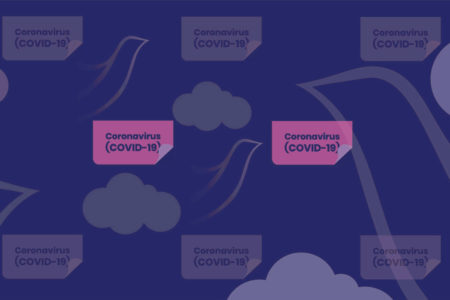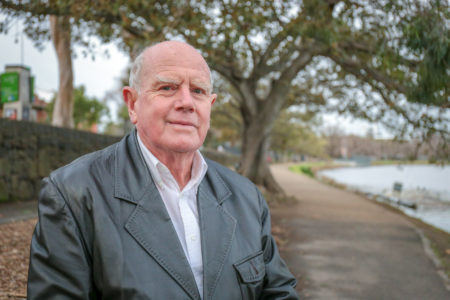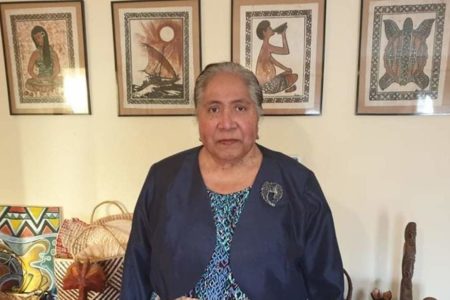On the way Christ feeds the Church with Word and Sacraments, and it has the gift of the Spirit in order that it may not lose the way.
(Basis of Union)
It’s only been a few weeks since the beginning of COVID-19 restrictions on how we gather as communities, though it feels like months for many of us!
Over the last couple of weeks, I’ve talked with and listened to many ministry agents, Presbytery Ministers and Chairpersons across the Synod, as well as with members of the Synod Intercultural Forum and Synod intercultural Leadership Development Ministry staff. This has included informal calls and videoconference meetings, as we work together in ministry, all part of the one body in Christ.
With the initial constant changes to restrictions and guidelines introduced by public health authorities, new considerations for ministry practice are continuing to emerge, which in turn need to be matched to the cultures and contexts of our Church.
Some important topics and themes have emerged that relate specifically to ministry practice.
The ongoing theological and spiritual work of ministry – sustaining ministry practice
Beyond the practical questions about how we keep connected or use our energies, ancient questions are emerging in new ways or with a new poignancy, about the very nature of Christian community and the ministry needs of our communities. What sustains us in our lives of faith? How can we be communities of disciples witnessing to the life of Christ in our wider world? What discernment and reshaping of the ministry and mission of our communities are we being called to? How we can serve the world God loves in justice and peace? We are finding many of our cultural assumptions of ministry are being challenged, as deep theological questions arise in our changed ministry contexts. They bring us to deep theological work on themes such as death and resurrection, incarnation and community, justice and the meaning of mission, experience of God and of being human, and the changing shape of vulnerability and safety, work and home.
We have a rich resource of local theologians to draw upon, such as:
- By the Well
- University of Divinity
- Fran Barber’s Continuing Education for Ministry – VicTas Facebook group
Ultimately, every minister needs to give dedicated and prayerful time to this essential work that emerges from our own ministry practice and context. Keeping connected with ministry colleagues through Presbytery, peer learning and collegial groups is as important as ever. As you take the time to do this work, may it be a life-giving gift to sustain and renew your life of faith, and that of your communities, in Christ.
Self-care in ministry
The need to adapt ministry to constantly changing conditions has been demanding for many ministry agents, both personally and communally. Many of us have felt stretched or overstretched, especially during the intense period of Holy Week and Easter. As we sought to provide ways for our communities to share the journey of Jesus to the cross, to remain with him in the darkness, and then to share the joy of the risen Christ among us, we may have found our own faith journeys in these challenging times to be particularly taken up in the Christ of our faith.
At the best of times, most ministry agents are tired in the days after Easter. This year, many of us are exhausted; and we are now taking stock and planning how our ministry practice can be more sustainable for the continuing road ahead. One metaphor I’ve heard is preparing for a marathon rather than a sprint. Many of us are recognising the need to develop new strategies to ensure time for prayer, study and self-care – for the sake of ourselves, our families and our communities. I encourage you to talk and work together with your Church Council and with your professional supervisor in this discernment and planning.
<!–
Funerals when a person has died with Coronavirus – adapting our cultural and ministry practices
Cultural and religious practices for funerals and around the time of death vary widely across our Church. Some involve family and the community in intimate contact such as washing, viewing, touching and kissing the person who has died. Recently introduced health restrictions in the case of suspected or confirmed COVID-19 significantly limit this contact. Depending on the culture of the communities and families of the person who has died, these restrictions may raise significant challenges for the family, and for the minister in supporting the family through this time.
Government guidelines contain detailed information about how the body of a person who has died with COVID-19 is to be handled, including some information specifically related to cultural and religious practices.
Victorian guidelines
Australian guidelines
Where needed, these guidelines may help you understand the restrictions and to consider ahead of time how to adapt your ministry practice to support families to have a funeral that is sensitive to their cultural needs. Hospital or aged care staff and funeral directors are a valuable source of guidance for the local context. Please consider and discuss with your Church Council ahead of time, how you might support families in this situation in your community.
–>
Reducing the risk amongst vulnerable groups – when a minister is part of a vulnerable group
Those at greater risk of serious illness from COVID-19 are being urged to take higher precautions to protect themselves. Those who are over 70, over 65 with chronic health conditions, immune-compromised, and Indigenous people over 50 with chronic health conditions are all urged to stay at home. This advice includes ministry agents in these at-risk groups, whether retired or in active placement, who would have otherwise led funerals. If you are in these risk groups, please consider how you might hand over this aspect of ministry. Talk with your Church Council, and have clear arrangements in place in advance as to who may be called on for funerals, especially where the person has died with confirmed or suspected COVID-19.
Keeping in touch with latest developments and civic authority announcements re COVID-19
I encourage you to access the Synod’s regular e-News Updates regarding COVID-19, including the Frequently Asked Questions and the relevant government websites, which can also be found in the e-news update.
My prayer is that this may be a time of remembering that we are many parts of one body in Christ, the One in whom we find our life; that we each bring our own gifts to contribute to building us up as one whole; and the Spirit is with us always, that we may not lose the way.
Your own communities and the wider Church are deeply grateful for how you are engaging in ministry in these changed and changing times.
May the Spirit guide, sustain and uphold you in the grace and love of God we know in Christ Jesus.
Grace and peace,

Rev Denise Liersch
Moderator





